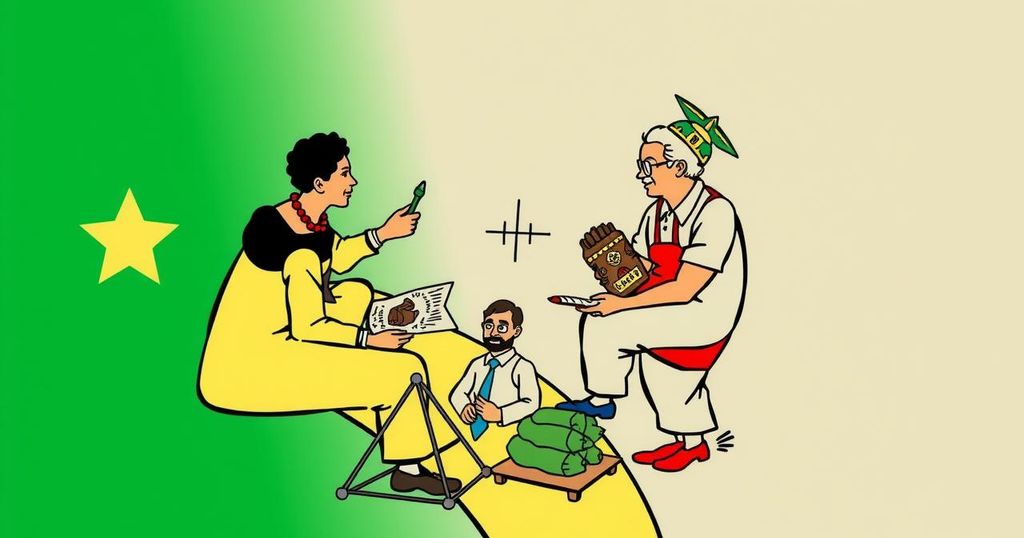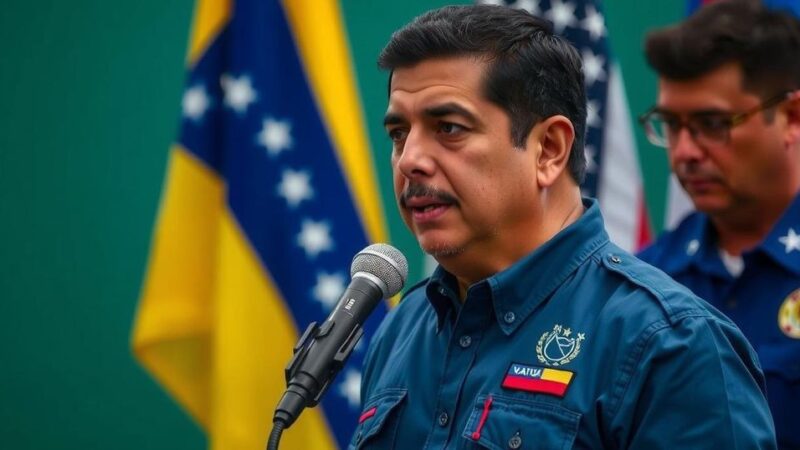FAO Deputy Director-General Beth Bechdol and Prime Minister Judith Suminwa Tuluka of the DRC met to discuss strategies for improving food security and resilience among vulnerable populations. The discussions highlighted the urgent need to support livelihoods in IDP camps and reduce dependence on humanitarian aid amid a severe hunger crisis affecting approximately 25 million people in the country.
High-level discussions were held recently between the Food and Agriculture Organization (FAO) Deputy Director-General Beth Bechdol and Prime Minister Judith Suminwa Tuluka of the Democratic Republic of the Congo (DRC). The primary focus was on ongoing collaboration to tackle food insecurity and enhance resilience amongst vulnerable populations in the country. This meeting was part of a six-day mission by a senior FAO delegation to strengthen partnerships and address urgent food security needs.
During the meeting, Prime Minister Suminwa Tuluka, who is the first female Prime Minister in DRC, expressed appreciation for FAO’s commitment and partnership. Bechdol highlighted the importance of scaling up livelihood activities, particularly in internally displaced persons (IDP) camps, to reduce dependency on humanitarian aid and foster long-term resilience. The context of this dialogue is critical, as approximately 25 million individuals—almost one-quarter of the DRC population—are currently facing hunger due to ongoing conflict.
The discussions also witnessed the attendance of State Minister Grégoire Mutshail Mutomb and representatives from the affected provinces of North and South Kivu. FAO’s recent food security analysis indicated that by December 2024, about 25.6 million people are expected to experience acute food insecurity, with significant levels classified as severe. It was emphasized that agriculture is crucial, with 70 percent of DRC’s population relying on farming and fishing for their livelihood.
Furthermore, Deputy Director-General Bechdol visited the Rusayo 2 IDP Camp in North Kivu, where over 30,000 displaced individuals are living in overcrowded conditions. FAO initiatives aimed at assisting these households include providing essential tools and resources for food production, thus empowering families to regain their livelihood.
This engagement reflects FAO’s ongoing commitment to alleviate food insecurity through comprehensive humanitarian responses and targeted international collaboration, ultimately aiming to improve the resilience of impoverished communities affected by conflict.
The Democratic Republic of the Congo faces severe food insecurity primarily due to prolonged conflicts affecting agricultural production and displacing millions. Approximately a quarter of the population is currently facing hunger, necessitating urgent intervention and support for vulnerable groups. The FAO has been actively involved in implementing programs aimed at building resilience and improving food security through partnerships with national authorities and other international organizations. This collaboration is crucial for reducing reliance on humanitarian aid and promoting sustainable agricultural practices in a country where the majority of the populace relies on farming for their livelihoods.
In summary, high-level discussions between the FAO and the DRC government reaffirmed a strong commitment to combat food insecurity and enhance community resilience. With millions facing hunger and the ongoing challenges of conflict in the region, collaborative efforts to support agricultural livelihoods in IDP camps are essential. FAO’s proactive strategies focus on empowering vulnerable populations, ensuring they have access to resources for sustainable food production, which is vital for their long-term prosperity and stability.
Original Source: www.fao.org






